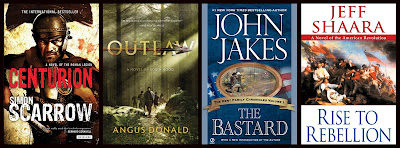Over the last several years, we've undergone a shift in how we operate as a family. We're coming to what we hope is a better understanding of how the Christian life should be lived, particularly in our increasingly pagan western world that is largely helped along by an anemic and dare-we-say-it incompetent church. Ours is an apostate culture that has rejected Christ, and in its place there is a resurgence of ancient paganism. All the big talking points of our culture are modern expressions of ancient pagan practices. Pro-choice Molechites delight in the child sacrifice of abortion, and those who have embraced the sexual rebellion, transgenderism, etc. are nothing more than woodwork Asherites. Our American culture used to be largely Christian, but by the time my wife and I were in high school, the positivity of Christianity became neutral. It wasn't bad to be a Christian, but it wasn't good, either. Our culture was beginning to drift away from Christ, and it needed to be reminded of its historic roots. Fast forward to today, and our culture has completely shorn itself from its Christian foundation and is gleefully hostile to God and His people. The question becomes, 'How should a Christian family operate in such a situation?' In the 90s you could argue that the best approach with culture was being winsome, being an example, showing people the goodness of the Christian life; now, however, we are faced with pure warfare on a spiritual level, and the paganism of our culture - its feminism, its sexual license, its child sacrifice, its rejection of truth and beauty - is doing everything in its power, from social media to state sponsorship, to woo our children to its side.
The church hasn't helped. We've aimed to convert people by being winsome and relatable, and in the process most churches have succumbed to the propaganda. It was just a few years ago that our local Crossroads evangelical church hosted a guest preacher who quoted scripture on homosexuality and affirmed the biblical teaching against it, and people - including many in the congregation! - lost their minds. Many churches, for fear of pushing people away with hard truths, have loved them - and their congregants - to hell. We need to acknowledge where the church has gone wrong, and we need to make sure our kids know it - because people claiming to be Christian are deceived and won't tell them the truth. Fathers have passed the buck of religious education to the church, and the church has failed to prepare youth for the propaganda and warfare of pagan culture; the result is that youth are leaving the church in droves. Out of all the youth at Southwest in the early 2000s when I was a high schooler, only a handful have remained openly Christian; and most of those I was friends with at CCU have gone apostate. We cannot continue to operate as we have been.
Perceiving all this, years ago I began taking my family in a different direction, and we changed a lot about how we operate. Here are a few things we've embraced to be a more consistently Christian household:
(1) We joined a solid biblical church with sound doctrinal teachings, strong community, proper administration of the sacraments, and church discipline. We have been adamant about not missing Sunday worship except in extreme circumstances (debilitating sicknesses or lack of a vehicle).(2) We pulled our daughters out of public schools which are openly hostile to Christ.(3) We have been catechizing our children. We subscribe to the Westminster Confessions, which are conveyed through the Larger, Shorter, and Children's catechisms. The Larger Catechism is geared towards adults and seasoned believers, the Shorter Catechism towards older children or new converts, and the Children's Catechism is geared towards children ten and under (Naomi is doing great!).(4) We practice family worship or family devotions that include reading Scripture, talking about it, and praying together. This is a subset of our continued evolution in grafting traditional Christian practices into our family's rhythm.
One of the reasons we joined East River Church in Batavia is that we saw the writing on the wall. We moved out of West Chester and into the foothills of Appalachia after two years plugged into that community. Since joining East River, we've grown close to several families who are serious about the Bible and living traditional Christian lives, have been afforded a deep well of theological truth in the Reformed tradition, and have been learning how to hopefully raise our daughters to be strong Christian women. This wasn't a hasty decision, and we weren't fleeing anything. I had been moving into the Reformed camp for a while, and I'd grown disillusioned with the lack of depth, lack of church discipline, and empty theological traditions of the standard Church of Christ churches. Our shift to homeschooling happened because we saw Chloe's 7th grade homework during the remote learning of that first year of covid-19; the propaganda machine was heavy at work, and suddenly the 'conspiracy videos' on TikTok and Reddit didn't seem so farfetched. What does English literature have to do with transgenderism? Apparently much, for Chloe's literature class was promoting transgenderism to seventh graders! As icing on the cake, for Religious Week, no Christians were allowed to preach the gospel or present their beliefs, but the students were taught to recite Muslim prayers. It was madness.
My wife and I have been doing a lot of learning on what the Bible says for families. We've been looking at the issue from the perspective of covenant households. The idea of a covenant household is found in scripture, and it teaches that what is true of the father (or mother, in some cases) is true of the household as well. As a believing household, we are a covenant household, which means we are part of God's covenant with all the attending privileges and responsibilities. This understanding of covenant households is leading us towards paedobaptism, which is baptizing our children as covenant members due to their belonging to my household. Of course, this understanding of baptism is markedly different from that which is found in Baptist or Church of Christ churches, but it has deep theological and historical precedence, and can be traced back to the early church as the normative practice (credobaptism as we know it today didn't emerge until the 1600s!).
As the covenant head of my household, I am the leader, the decision-maker, charged with leading and protecting my family in all aspects, particularly when it comes to religion. My wife is to be submissive and helpful, and her main task is guarding and keeping the home. It is my responsibility to raise my daughters to know biblical truth, to know what God expects of them, and to prepare them for the propaganda of the world and tough challenges to their faith. So I have to ask, what are the biggest obstacles they will face? Here are just a few that are prominent in our culture:
(1) The sexual license of our culture. Our daughters need to know what the Bible says about fornication, sodomy, LBTQ ideology, transgenderism, modesty, etc. And it is my job to enforce these principles in my household.(2) The selective pluralism of our culture. Our culture teaches that all religions are equal except one (Christianity). We need to stand fast against pluralism and relativism. Christianity is true; all other worldviews and religions are wrong, foolish, and to be disdained as falsehoods.(3) The infanticide of our culture. Abortion is the murder of innocent children, and the Bible expressly condemns it under all circumstances.(4) Feminism.
The fourth point - feminism - is particularly geared towards my daughters. Feminism is rampant in the church; people think it is no issue if a woman devotes herself to a career, refuses to marry and have children, or chooses both a career and children. The Bible - not to mention sociology, psychology, and biology - says that women are made for bearing and raising children. The greatest goal for a woman is to have children and be a keeper of the home. That is the glorious telos of woman, and this was known and celebrated for 6000 years until about five minutes ago. Feminist propaganda has convinced even Christian women that homemaking is old-fashioned, and liberal theologians do acrobatics to get around the plain teachings of Scripture in this regard. As faithful Christians, we promote this end goal and celebrate it - and we need to guard our daughters and educate them about God's good design. This is why we aren't promoting or paying for collages (which are just bastions of pagan propaganda, and that goes for most Christian colleges as well), but we will pay for them to get certifications or licenses outside of college within the confines of something that will help them in their natural nature.
So how do I prepare my daughters as they grow up in the faith to live in a world hostile to Christ?
(1) I teach them biblical truth.(2) I expose the lies and wickedness of pagan culture.(3) My wife and I model Christian living - I am to be a joyful and firm husband, and my wife is to be a joyful and submissive wife. We are to show the beauties of the Christian covenant household; that beauty is the best antidote to our corrupt culture. This ties in with exposing the despair and emptiness of paganism: if paganism was so great, why did pagans convert to Christianity in droves? The resurgence of paganism indicates that we have forgotten its failures to deliver what it promises.(4) I need to be selective about their influences, even their Christian influences. It is easy to say that you are a Christian, but do you live it? I don't want my daughters looking up to people who claim the name Christian but who have succumbed to the feminist lie.




















